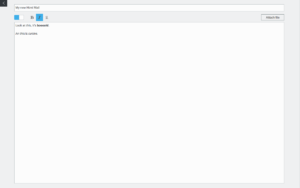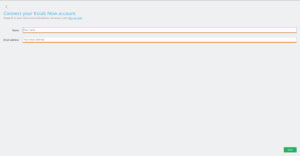On Saturday morning (CET) the DNSSEC records expired on one of our DNS servers. This caused a group of customers to have troubles logging in and connecting to Kolab Now services. The record has been renewed and all customers should have access (at 22:49 CET – Please read below).
PGP encryption for Kube
Secure and confidential communication is an important requirement for a society, and something, I think, we should provide to as many people as possible.
A popular mechanism to achieve this is to use public-key cryptography, which allows a person to encrypt a message to a persons key, so that only the intended recipient can decrypt the message. This means that even if an attacker would get his hands on the encrypted message, without the key, it’s only useless gibberish.
As one of the primary usecases of Kube is communication, it should also support you in doing so in a secure and confidential fashion.
Incident Report: Hypervisor Failure
This weekend, at approximately 12:00 UTC on Sunday, an issue on one of the hypervisors went by unnoticed for too long, and was finally resolved in the morning of Monday. This post explains what happened, why it happened, and what we’re going to be doing to address the situation.
Error feedback in Kube
One of the most frustrating user experiences is when you get an error message that you can’t do anything about, or even worse, that you don’t even understand.
While it’s very well possible that the error message is entirely justified, wouldn’t it be great if the system didn’t just tell you that something is wrong, but also what you can do about it? Error messages can be even more infuriating if they block you from doing your work even if they are not directly related, thus interrupting your workflow unnecessarily. Wouldn’t you rather have a notification that something does not work as it should, while otherwise letting you go about what you wanted to do, instead of just popping up a blocking popup that you have to click away before you can do anything else?
That’s what we’ve worked on last week.
iOS IMAP Connection Issues Resolved
In the last few days, I’ve spent hours and hours configuring accounts on my private iPhone 6 running iOS 11 in order to attempt to nail down where its connection issues originate.
I’m happy to be able to tell you I seem to have nailed it down, and there’s a quick fix for it, that we can apply on the server-side.
The beginning of an HTML editor
Kube recently gained a very basic HTML editor. It just does bold and cursive so far, but it’s a start for a more fully featured editor.
Of course you can also just continue to write plain-text mails if you prefer.
Enjoy =)
For more info about Kube, please head over to About Kube.
Support Kube through Kolab Now for fun and profit!
If you ever wanted to try Kube a great way to do so is with a Kolab Now account. You will not only reap the benefits of using an secure, Switzerland hosted Open Source service, but you will also help sustain the development of Kube.
Kube now sports a sign-up link, allowing you to sign up directly from the setup page, which will result in a Kube Kolab Now account.
The Kube Kolab Now account is special in that its feature set will follow the Kube feature set, and so will its price. So if you sign up now, for a more limited feature set, you not only benefit from a reduced price but also receive free upgrades in the future as we’re adding new features to Kube! You can still take advantage from the web interface from the beginning though, if you want to complement Kube with that.
Even if you are not sure if you want to take out a subscription, the 30 day trial allows you to test the service and get a full refund if you’re not satisfied.
So get Kube now and sign up for your account =)
If you contribute to Kube in some form, be that writing documentation, testing, filing bugs or somehow else helping Kube, your Kolab Now account just might be free ;-). Get in touch with me!
For more info about Kube, please head over to About Kube.
Assessing the state of Kube with Buildbot
Over the past weeks I’ve been busy improving our continous integration (CI) system for Kube. In particular, I’ve set up a Buildbot instance to build, test, benchmark and deliver Kube.
Kube flatpak, now slightly slimmer
While working on our flatpak build infrastructure I noticed that the flatpak is much larger than it should be. After quickly digging into the flatpak one of the culprits was quickly found; a bunch of unnecessary files such as include files were left.
Incident Report: Backend Down
Earlier this morning, at 04:38 UTC, one out of the twenty-two IMAP backends in production stopped serving its mail spool, showing Input/Output errors on its disk. Our Standard Operating Procedure is to examine log files, flush vm caches, stop the virtual machine, and start it back up again. This occurred at 05:48 UTC. The IMAP backend in question did not come back up cleanly.



